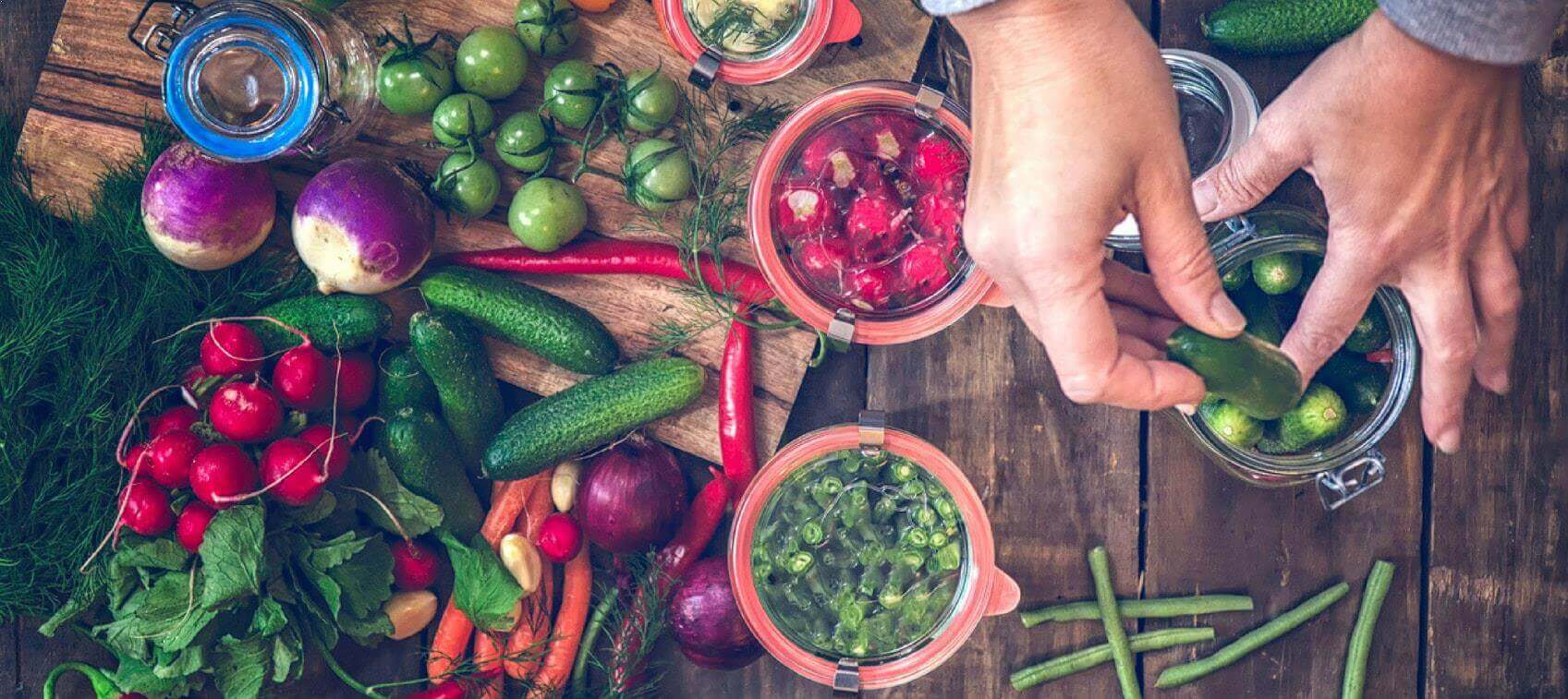
Think of probiotics as living organisms that benefit your body, because that is exactly what they are. Probiotics are the “good” bacteria your microbiome needs to stay balanced and healthy, improving your digestion, immunity, mood, skin, and more. When consumed, probiotics populate the digestive tract with beneficial bacteria.
When more bad bacteria exist than good bacteria, health problems may result. Probiotics are in a constant battle against unfavorable environmental conditions and competition with harmful bacteria. These hardworking, living organisms need to be nourished somehow, right? That’s why prebiotics are very important.
What is a Prebiotic?
Prebiotics aren’t as well-known as probiotics, but they are in a lot of common foods you eat such as asparagus, bananas, and onions. Prebiotics are non-digestible, fibrous carbohydrates. Think of them as “food” for your probiotics. Since they are non-digestible, they are highly resistant to the enzymes and acids in your upper digestive tract that try to break them down. Eventually they are able to reach the home of your lower gut flora: the colon. There, probiotics process prebiotic fibers, turning them into a fuel source that increases the growth and colonization of beneficial gut flora.
6 Benefits of Prebiotics
Here are a few of our favorite benefits of prebiotics:
- Stimulates growth of “good” gut bacteria
- Supports the diversity and balance of beneficial gut bacteria
- Helps reduce ratio of bad gut bacteria in the body
- Improves gut barrier function
- Increases immune health function
- Enhances stool regularity
The Difference Between Probiotics and Prebiotics
When you take probiotics, you are giving your body beneficial cultures. However, without the right environment, these cultures will not reach their full potential and may not continue to survive and thrive. That’s where prebiotics come into play.
Prebiotics help support the growth and proliferation of probiotics. They also help create an environment for increased bacterial diversity as they support the growth of many different bacterial cultures. Not only do they support the strains and species you are consuming through supplementation, but also the ones you consume through food. By improving the intestinal environment, it becomes easier for new, beneficial strains to colonize (what do we say about colonization to be accurate?) the gut, potentially increasing the diversity of intestinal flora.
Probiotic Foods vs. Prebiotic Foods
Another difference between probiotics and prebiotics is the foods that contain them. Probiotic foods contain live bacteria cultures that can improve digestion, immunity and overall health. Whereas, foods with prebiotic activity can contain resistant starch, fermentable fibers, or a type of fiber called oligosaccharides such as fructo-oligosaccharides (FOS).
Probiotic Foods:
- Sauerkraut
- Yogurt
- Kefir
- Kimchi
- Tempeh
- Kombucha
- Beet Kvass
- Pickled vegetables
- Miso
Prebiotic Foods:
- Garlic
- Onions
- Leeks
- Artichokes
- Asparagus
- Bananas
- Dandelion greens
- Apples
We wouldn’t suggest relying solely on food to include probiotics and prebiotics to your routine. Taking a daily probiotic supplement is one of the best ways to support your gut health. When it comes to prebiotics, you may have to do a little research since they are usually listed as their specific type (fructo-oligosaccharides, inulin or Xylo-Oligosaccharide, etc.)
The Dynamic Duo: Prebiotics + Probiotic = Synbiotics
Now that we’ve talked about the difference between probiotics and prebiotics, let’s talk about why they are meant to be together. There is actually a term created to describe the synergy between probiotics and prebiotics: it is synbiotics. The combination of probiotics and prebiotics is a gut health slam dunk, so it is important to include synbiotics into your diet. If you do, you will promote a healthy balance of intestinal flora, and ensure you are receiving the maximum benefit from your probiotics.
When you take your daily probiotic, eat a banana or whole-grains to help fuel these gut health allies. You could also eat a yogurt and banana together for a quick and healthy synbiotic powerhouse. Also, you can add onions and garlic to a lot of dishes to get more prebiotics, and a better tasting meal! It’s both fun and comforting including food and supplements in your diet, knowing that you are doing something good for your gut health, and your whole body.


